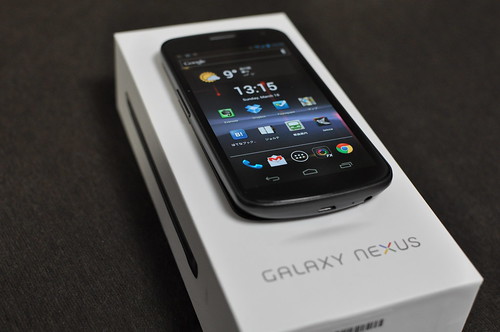 It looks like Samsung's Christmas elves will be delivering Galaxy Nexus smartphones after all. It was looking a bit 'iffy' there for a while. Earlier this year Apple filed a motion for a preliminary injunction in a United States district court. The court granted the request based on infringement of US Patent 8,086,604 (the '604 patent).
It looks like Samsung's Christmas elves will be delivering Galaxy Nexus smartphones after all. It was looking a bit 'iffy' there for a while. Earlier this year Apple filed a motion for a preliminary injunction in a United States district court. The court granted the request based on infringement of US Patent 8,086,604 (the '604 patent).Last week the United States Court of Appeals for the Federal Circuit overturned that decision.
Unified search
So what did the '604 patent cover exactly?
Claim 6 of the patent covered an apparatus for a unified search that uses heuristic modules to search multiple data storage locations. When we talk about a unified search, we mean the ability to access information on more than one data storage through a single interface. A device equipped with unified search allows a user to search the local memory of the device as well as the Internet by entering a single search query.
Apple reckoned that the Quick Search Box (QSB) on Samsung's Galaxy Nexus infringed claim 6.
Getting a preliminary injunction
A preliminary injunction is a pretty serious matter with pretty serious consequences. A plaintiff must establish that:
- he is likely to succeed on the merits,
- he is likely to suffer irreparable harm in the absence of preliminary relief,
- the balance of equities tips in his favour, and
- an injunction is in the public interest.
In the appeal the parties argued over the district court's analysis of two of those factors.
Irreparable Harm
This was a case, according to the Federal Circuit, where the accused product includes many features of which only one (or a small minority) infringe. It's not enough for the patentee to show irreparable harm. The patentee also has to show a 'sufficiently strong causal nexus relates the alleged harm to the alleged infringement'.
Putting this another way, the patentee must show that the infringing feature drives consumer demand for the accused product. The Federal Circuit was not convinced that the Quick Search Box (QSB) feature drove consumer demand.
Even if there was the potential for harm, Apple couldn't show that the harm flows from Samsung's alleged infringement.
Likelihood of Success
Given its finding above, there was no need for the Court to go on and consider the likelihood of success factor. But they did anyway. And found another reason to chuck out the injunction.
Claim 6 required "a plurality of modules ... wherein ... each heuristic module corresponds to a respective area of search and employs a different, predetermined heuristic algorithm". The district court found that the term "plurality" means "at least two," or "simply the state of being plural."
So what does "each" of "a plurality of heuristic modules" mean? Does it mean "each of at least two modules"? Or does it mean "each of every module"? It's quite an important distinction.
Apple argued that the claim limitation is satisfied as long as the Quick Search Box (QSB) contains at least two modules that use different heuristic algorithms. Apple pointed to three heuristic modules within the QSB that use different heuristic algorithms. These are Google which searches the internet, Browser which searches the Internet browsing history, and People which searches the user's contacts list.
Samsung argued that claim 6 requires every heuristic module within the accused device use a unique heuristic algorithm. The QSB, said Samsung, contains other search modules besides the three picked out by Apple. Some of those other search modules might share the same heuristic algorithm.
The district court agreed with Apple that the claim wording means "each of at least two modules". It didn't agree on the Google module, but agreed that the modules Browser and People each use different heuristic algorithms.
The Federal Circuit didn't like that construction. The district court, said the Federal Circuit, has construed "plurality" to mean "at least two" without any indication that the term refers to a hand-picked selection of a larger set.
The plain language of the claim, the patent specification, and the prosecution history all point to a claim construction where each of every module within the claimed apparatus must use a different heuristic algorithm.
Apple couldn't show that it was likely to succeed in its infringement claim, therefore providing another reason for the Federal Circuit to chuck out the injunction.
What now?
A preliminary injunction would have presented Apple with an easy win over Samsung. It would have been a bit hard for Samsung to compete with Apple if Samsung could not sell its Galaxy Nexus at all. Apple has some hard graft ahead of it if it still wants to challenge Samsung's use of the Quick Search Box.
Photo courtesy of author TAKA@P.P.R.S under Creative Commons licence.
No comments:
Post a Comment